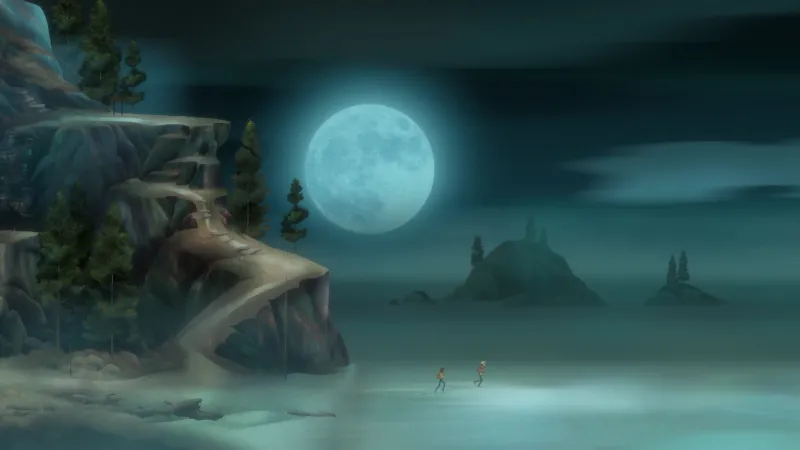
Reviewed on: PC
Platform: PlayStation 5, PlayStation 4, Switch, PC, Mac, iOS
Publisher: Netflix
Developer: Night School Studio
Release:
Rating: Teen
Oxenfree II: Lost Signals delivers what I have wanted out of a sequel seven years after the first game's release. Although its overarching A-to-C narrative feels like it is missing a “B” in the journey, I’m impressed with most of what Oxenfree II accomplishes. It brings back the original's simple but charming radio mechanics, adds a walkie-talkie that expands the world around protagonist Riley, and, most importantly, features incredibly well-written and believable characters. While Oxenfree II’s paranormal events are spooky and cold, the cast is warm, bright, and complex, and the entire package feels like an ‘80s summer romp.
If Oxenfree, developed by Netflix-owned Night School Studio, is about teenagers in the idealized 1980s popularized by Hollywood with series like Netflix’s own Stranger Things, then Oxenfree II is about the lesser-seen adults dealing with their mess afterward. Set five years after the original game, Riley arrives in her hometown of Camena for day one of a new environmental research job. She grew up here and left for reasons you discover in the story, only to find herself returning as a 30-something-year-old for work.
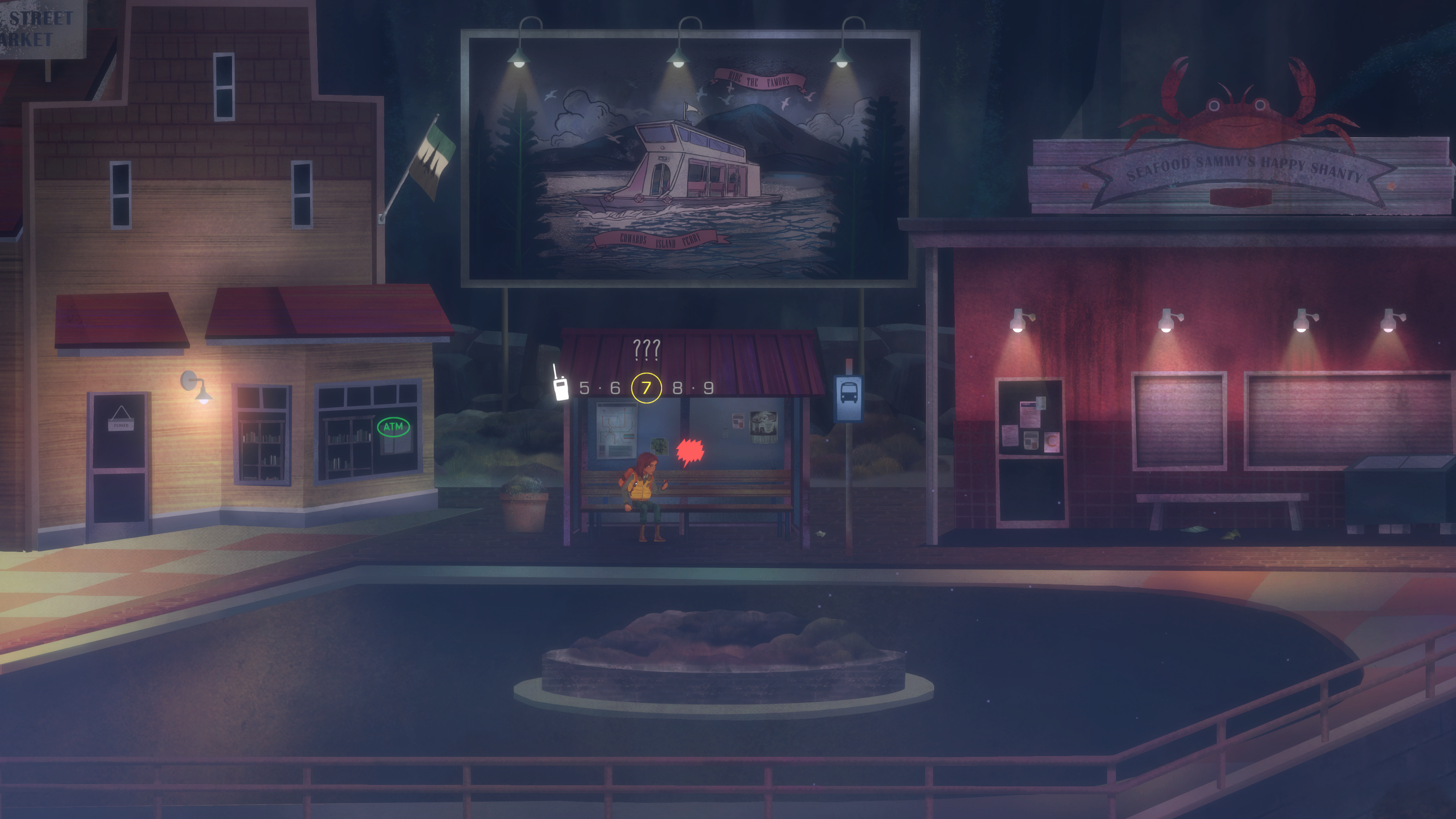
She soon meets Evelyn, a coworker working 20 miles away who shows her the ropes, and Jacob, her now-colleague. After placing a transmitter high on the island, things go awry quickly, and a familiar triangular prism appears over the sky of Oxenfree’s Edwards Island, visible in the distance of Camena. And this isn’t good, so Riley and Jacob set off to end it. As the duo explores more of Camena, trekking through abandoned mines and caves, climbing up cliff sides, and sprinting across moonlit beaches, they discover a cult, angsty teenagers stubborn in their decisions, ghostly apparitions, some familiar faces, and more. I thoroughly enjoy every hike to the following transmitter location because it always leads to more dialogue between Riley, Jacob, and the various people of Camena that Riley can talk to using a walkie-talkie.
Mechanically, Oxenfree II plays just like its predecessor. You explore an island; pick dialogue options that paint the protagonist as sarcastic, kind, or cold; and solve simple puzzles using a radio. The walkie-talkie is technically a new mechanic, but it’s mostly just another avenue for dialogue. I don’t mind the lack of mechanic innovation in the sequel, but if Oxenfree’s heavy focus on narrative and light gameplay turn you off, this game might do the same. Just be wary when quitting the game, as terrible checkpointing without a clear save function caused me to replay several sections, dampening my excitement from playing them the first time.
I can’t express enough how much I enjoy the conversations between every character. Not only are they well-written, filled with romanticized language designed to get you in your feelings, but the voice cast delivers sincerity in every line. Riley and Jacob are the clear standouts, and learning at the end that it’s possible not to befriend Jacob in the game was bewildering. Jacob feels intrinsically tied to the story as the light guiding Riley through the night’s mysterious journey and her mind’s attempted takedown of who she is at her core. In more ways than one, Oxenfree II is a story of discovery: of the paranormal, spooky plans conceived by desperate teenagers, and who these characters want to be after the night’s events.
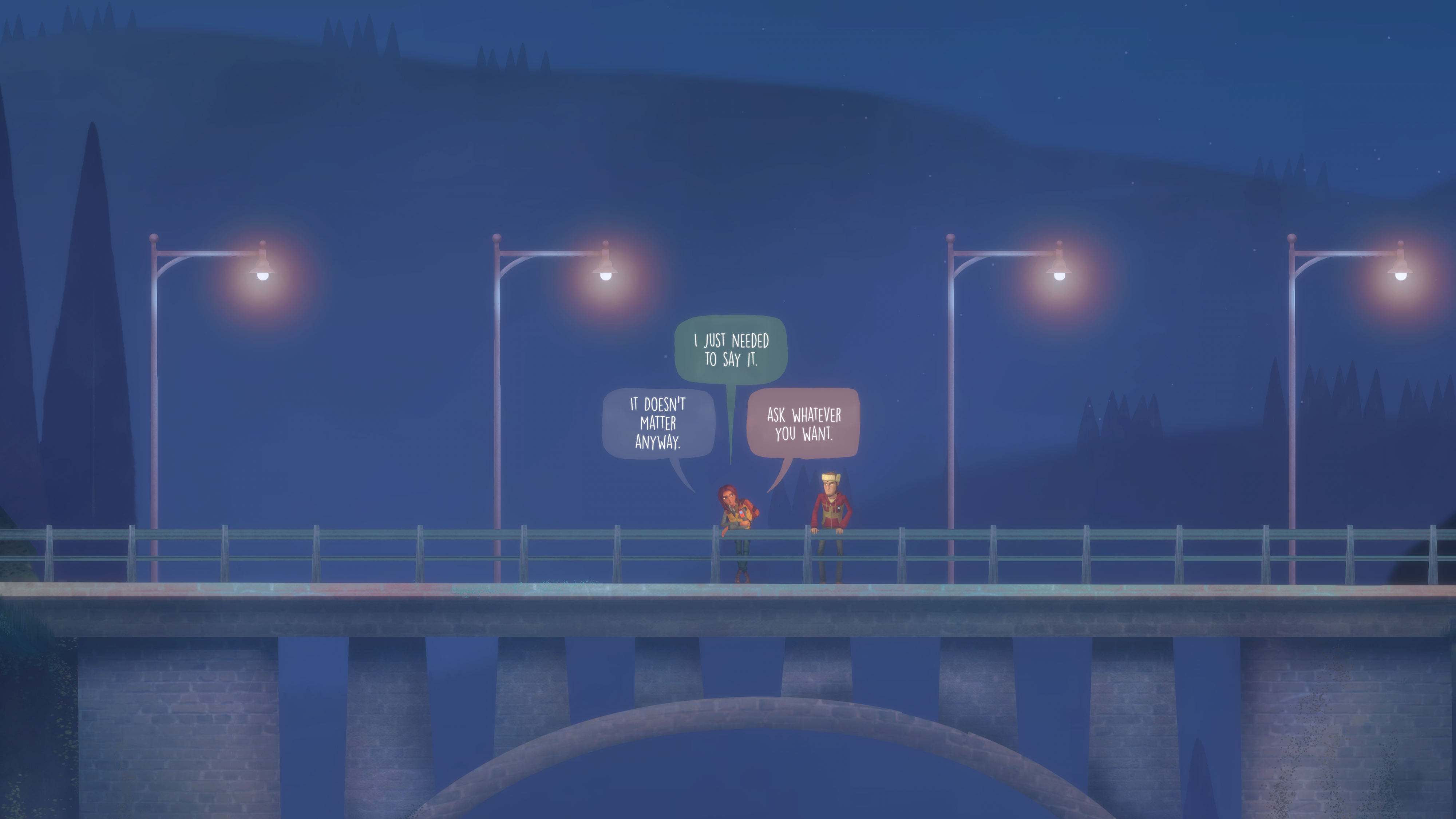
I especially love Oxenfree II’s more mature tone and story because it bucks the trend of adults who think they know what’s best for teenagers. Instead, it lets players decide how Riley and Jacob treat them, and that freedom leads to some surprising twists. These excellent conversations and twists are the highlight of the narrative experience for me, but the overarching story falls somewhat flat, not because I don’t enjoy what it has to say, but because it feels rushed, almost as if it’s missing a second act. Oxenfree II feels methodically slow and then, all at once, desperate to end, and it’s jarring.
Oxenfree II doesn’t shake up what its predecessor did in 2016, but it delivers more of the excellent writing and charm I expect from Night School Studio. While it's light on gameplay beyond traversal, it’s done in service of the characters. After 10 hours with this cast, I want more, but I’m happy with where this story ends and how my choices shaped that ending. Despite bad checkpointing and a swift rush to the end after an overly long setup, this return feels earned and essential, with a message that resonates far more than Oxenfree's. With Oxenfree II behind me, I’m thrilled Night School Studio delivered something special more than seven years away from this world.
Score: 8
About Game Informer's review system
PurchaseSource: Game Informer

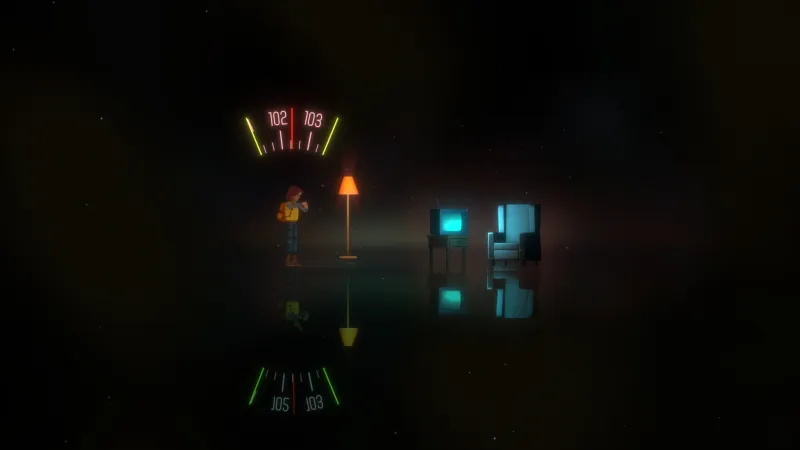
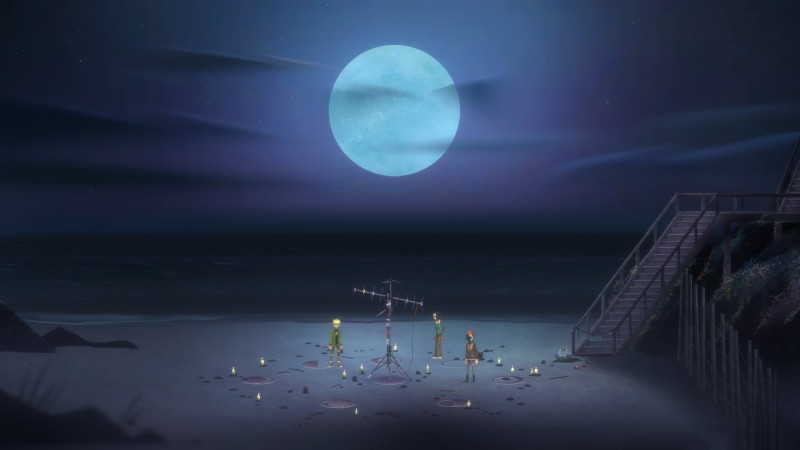
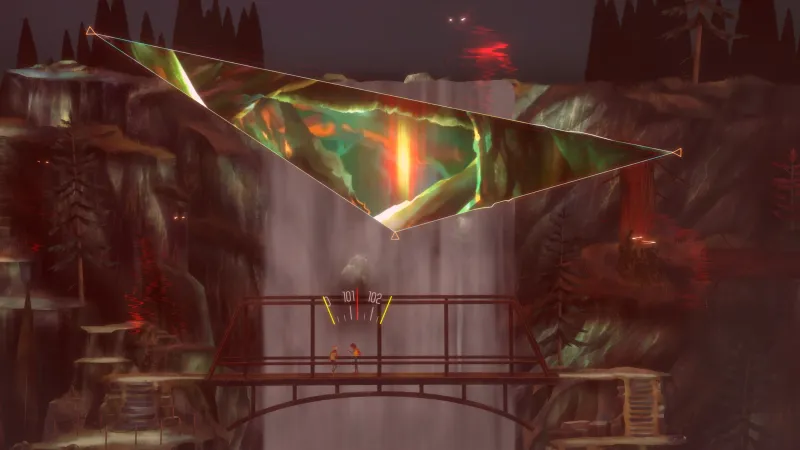
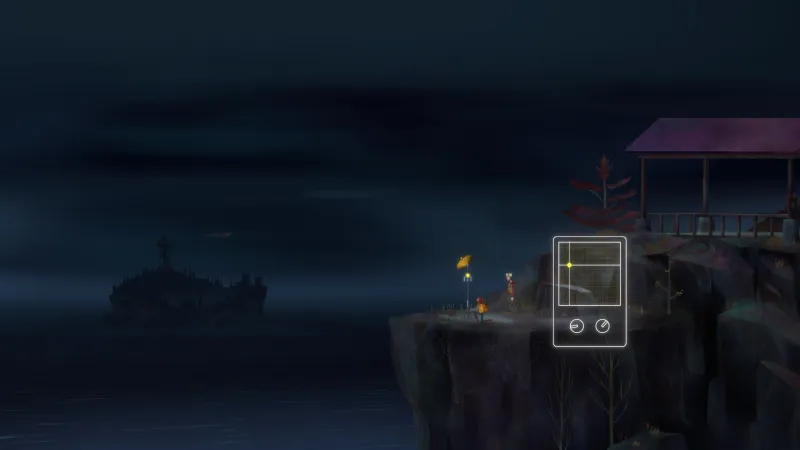
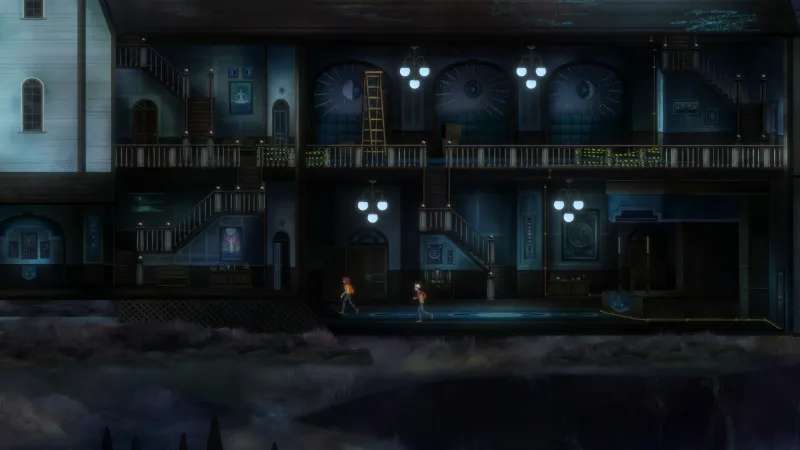
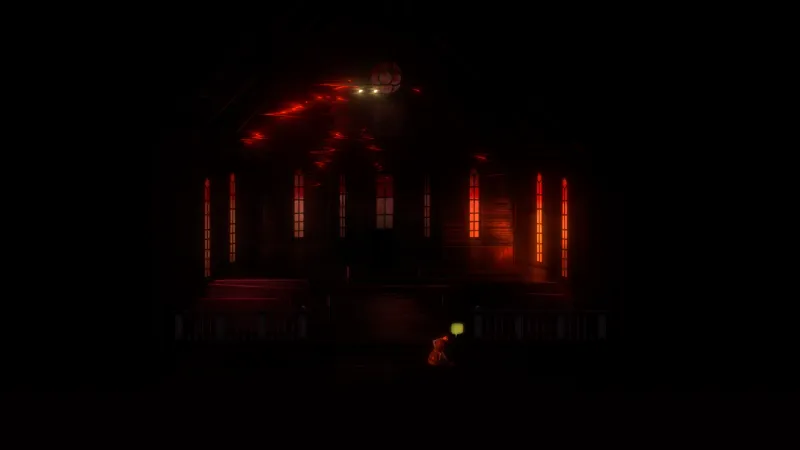
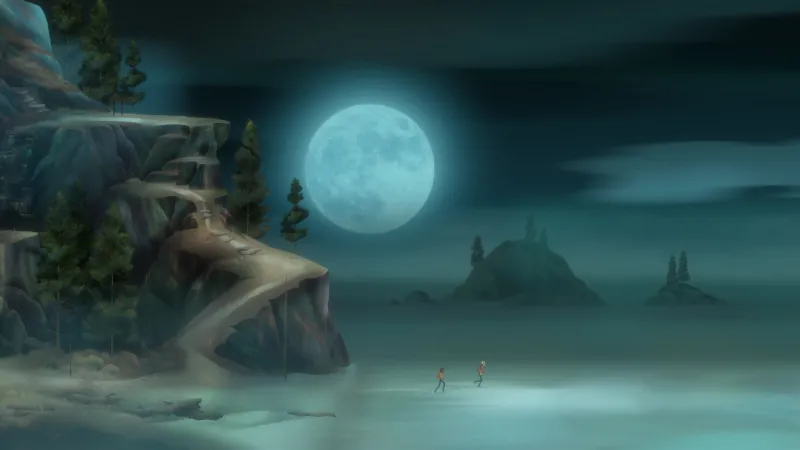
Comments
Post a Comment